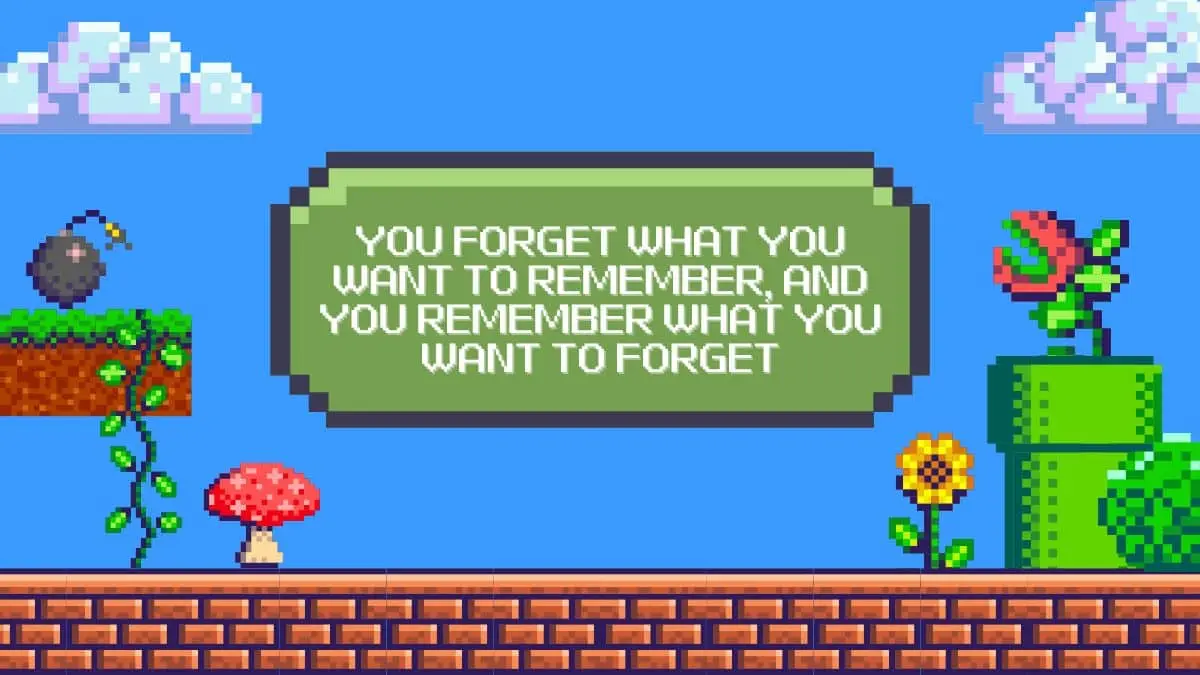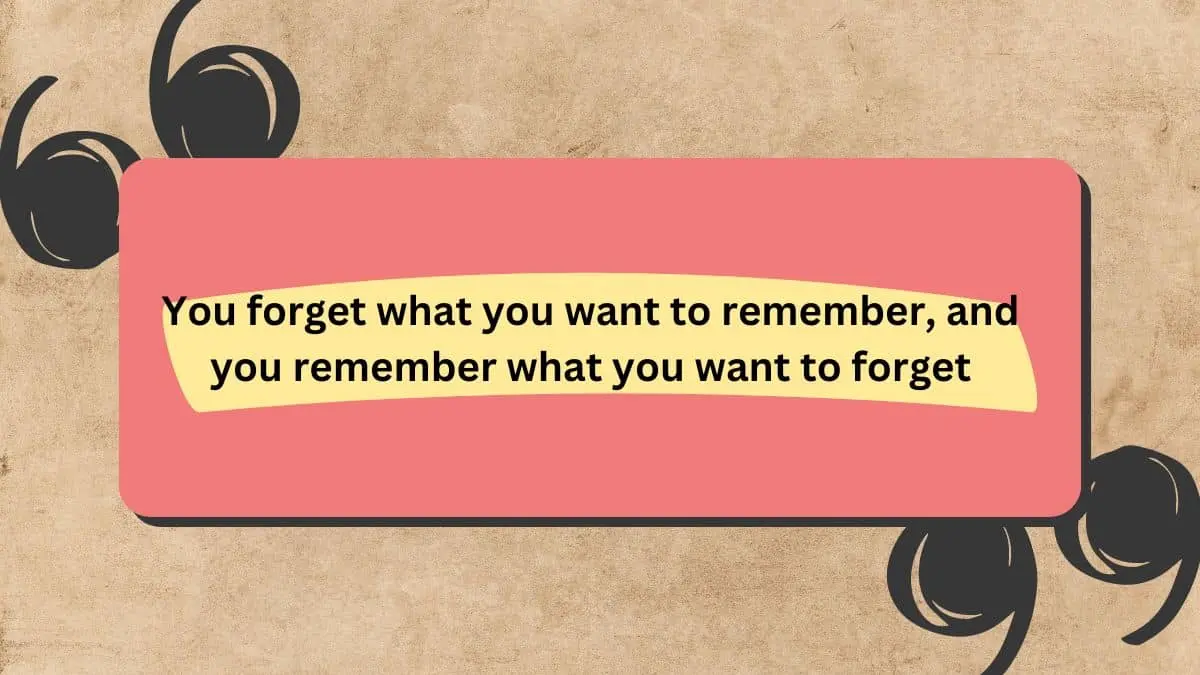Memory is a curious thing. It can be as elusive as a shadow or as stubborn as a stain. The quote “You forget what you want to remember, and you remember what you want to forget” beautifully encapsulates the paradoxical nature of memory and the human psyche. At first glance, this quote might seem like a simple observation, but it carries profound insights into the complexities of our minds, our emotions, and our relationship with the past.
The Nature of Memory
To understand the depth of this quote, we must first explore the nature of memory itself. Memory is not just a passive record of past events; it is an active process that involves encoding, storing, and retrieving information. However, this process is not flawless. Our memories are subject to distortions, omissions, and even intrusions from our subconscious minds.
When we try to remember something important, like a special event or a piece of valuable information, we might find ourselves struggling. Conversely, painful memories or moments we wish to forget often resurface at the most inconvenient times. This duality hints at the complexities of memory, shaped not only by cognitive processes but also by our emotions, desires, and psychological defenses.
The Hidden Meaning of the Quote
At its core, the quote “You forget what you want to remember, and you remember what you want to forget” speaks to the conflict between our conscious and subconscious minds. It reflects the tension between our desires and fears, between what we consciously seek to hold onto and what our subconscious tries to protect us from.
- Repression and Suppression: Psychologically, the quote can be linked to the concepts of repression and suppression. Repression is an unconscious defense mechanism where the mind pushes painful or traumatic memories out of conscious awareness. These repressed memories can resurface unexpectedly, often in the form of intrusive thoughts or dreams, which explains why we “remember what we want to forget.” On the other hand, suppression is a conscious effort to forget or ignore certain memories, but this effort can backfire, leading to forgetfulness about things we wish to remember.
- Cognitive Dissonance: The quote also touches on the idea of cognitive dissonance, the mental discomfort experienced when we hold two or more contradictory beliefs, values, or ideas. When we try to remember something that is emotionally charged or contradicts our current beliefs, our minds may struggle, leading to forgetfulness. Similarly, we may remember unwanted memories because they create an unresolved conflict within us, forcing us to confront what we wish to avoid.
- Emotional Weight of Memories: Memories are not just factual recollections; they are often colored by emotions. Positive memories may be forgotten because they lack the emotional intensity that negative memories possess. Negative memories, especially those tied to regret, guilt, or fear, tend to linger because they are linked to survival instincts. Our brains are wired to prioritize the retention of information that could help us avoid future harm, even if it means reliving past pain.

The Psychological Implications
This quote reveals several psychological truths about the human condition. It highlights the selective nature of memory, influenced by our emotional state, mental health, and unresolved issues. It also underscores the idea that our minds are not entirely under our control; there are aspects of our memory that operate independently of our conscious will.
- The Role of Trauma: For individuals who have experienced trauma, the quote resonates deeply. Traumatic memories are often fragmented, and individuals may struggle to recall certain details while being haunted by others. The brain’s response to trauma can lead to both forgetting and intrusive remembering, a phenomenon that is well-documented in psychological literature.
- The Impact of Regret and Guilt: The desire to forget certain memories is often driven by feelings of regret or guilt. These emotions can trap us in a cycle where we are unable to let go of the past, even as we desperately wish to move on. The more we try to forget, the more these memories persist, reminding us of our perceived failures or losses.
- Mindfulness and Acceptance: Understanding the dynamics of memory can lead to healthier coping strategies. Instead of fighting against our memories, practicing mindfulness and acceptance can help us come to terms with our past. By acknowledging both the good and the bad without judgment, we can reduce the emotional charge associated with unwanted memories and make peace with what we cannot change.
Conclusion
The quote “You forget what you want to remember, and you remember what you want to forget” offers a profound insight into the human psyche. It reminds us that memory is not just a cognitive function but a deeply emotional and psychological process.
Also Read: To learn to read is to light a fire; every syllable that is spelled out is a spark.



